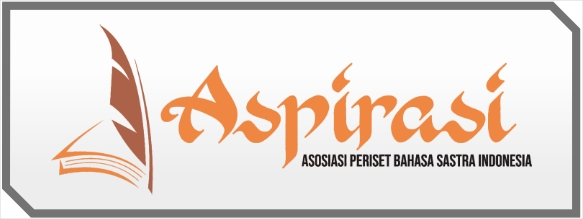Gamifikasi dalam Pengajaran Bahasa Inggris dengan Menggunakan Platform Genially
DOI:
https://doi.org/10.55606/jupensi.v3i3.2834Keywords:
gamification, genially platform, student perspectiveAbstract
Genially is one of the educational tools that advocates interactive visual communication. Genially serves as a comprehensive online platform where teachers can create captivating presentations, interactive graphics, infographics, gamification, quizzes, breakouts, portfolios, and more, enriching them with interactivity and animation effects within seconds. The objective of this workshop's research is to identify students' perceptions of the impact of the gamification teaching method using the Genially platform and to engage and enhance students' interest in the field of education through ELT (English Language Teaching). In this study, various findings related to the respondents' views on the gamification approach in teaching English using the Genially platform were discovered. The results indicate that the gamification approach through the Genially platform receives a positive response from participants regarding the English learning process, particularly including students' interest and motivation in learning English. This research is expected to serve as innovation, inspiration, and evaluation for educators and students in its implementation within English language teaching and learning through gamification methods using the Genially platform, involving various other instruments in the future.
References
Alomari, I., Al-Samarraie, H., & Yousef, R. (2019). The Role of Gamification Techniques in Promoting Student Learning: A Review and Synthesis: A review and synthesis. Journal of Information Technology Education: Research, 18, 395-417. doi:doi.org/10.28945/4417
Anthony Jnr, B., & Noel, S. (2021). Examining the adoption of emergency remote teaching and virtual learning during and after COVID-19 pandemic. International Journal of Educational Management, 35(6), 1136-1150.
Bennani, S., Maalel, A., & Ghezala, H. B. (2020). AGE-Learn: Ontology-based representation of personalized gamification in E-learning. Procedia Computer Science, 176, 1005-1014.
Cabrera-Solano, P. (2022). Game-Based Learning in Higher Education: The Pedagogical Effect of Genially Games in English as a Foreign Language Instruction. International Journal of Educational Methodology, 8(4), 719-729.
Flores, J. F. (2015). Using Gamification to Enhance Second Language Learning. Digital Education Review, 32 - 54. doi:https://doi.org/10.1344/der.2015.27.32-54
Hermita, N., Putra, Z. H., Alim, J. A., Wijaya, T. T., Anggoro, S., & Diniya, D. (2021). Elementary Teachers' Perceptions on Genially Learning Media Using Item Response Theory (IRT). Indonesian Journal on Learning and Advanced Education (IJOLAE), 4(1), 1-20.
Lam, S. L. (2016). Use of Gamification in Vocabulary Leanguage: A case Study in Macau. (pp. 90 - 97). Singapore: Center for English Language Communication (CELC).
Leung, K. W. M., & Chan, T. N. C. (2023). Exploring gamification as a teaching strategy in changing times. Educating Teachers Online in Challenging Times: The Case of Hong Kong, 152.
Maloney, S. (2019). Gamification in English Language Teaching: More Than Child's Play. English For Asia - TESOL.
Rohimat, S. (2022). Pemanfaatan Macromedia Flash Untuk Media Pembelajaran Kimia Secara Daring. Jurnal Pendidikan Sultan Agung, 2(2), 160-171.
Rohimat, S. (2023). Tanggapan Peserta Didik Terhadap Model Pembelajaran Daring dan Luring Selama Masa Pemulihan Pembelajaran. Jurnal Inovasi Pendidikan Kimia, 17(1), 62-66.
Shahroom, A. A., & Hussin, N. (2018). Industrial revolution 4.0 and education. International Journal of Academic Research in Business and Social Sciences, 8(9), 314-319.
Tudor. (1996). Learner-centredness as Language Education. Cambridge: : Cambridge University Press. doi:10.5539/elt.v6n11p1
Downloads
Published
How to Cite
Issue
Section
License
Copyright (c) 2023 Jurnal Pendidikan dan Sastra Inggris

This work is licensed under a Creative Commons Attribution-ShareAlike 4.0 International License.

















